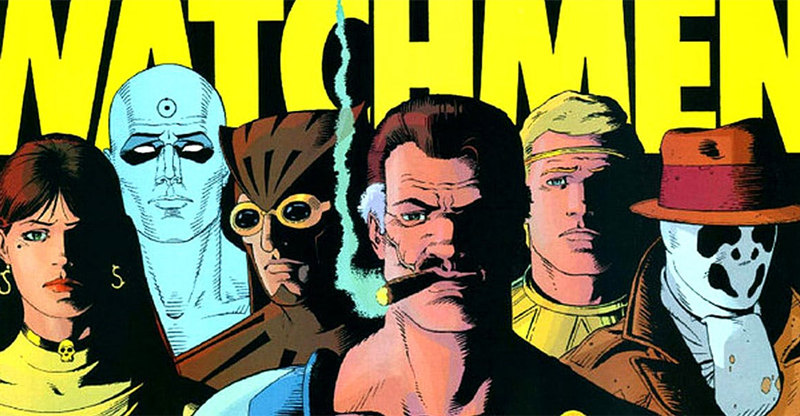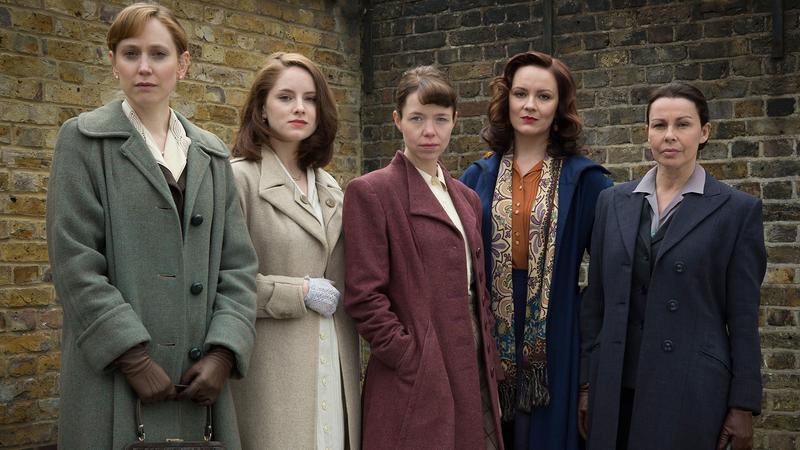It’s hard to imagine becoming so known for a lifestyle that centuries later your name would become synonymous with a type of behavior. But that’s exactly what happened with Giacomo Casanova, an Italian adventurer and perhaps the first kiss-and-tell author. Casanova wrote about his adventures and (s)exploits in an autobiography published after his death in 1798, and his name continues to be a way of describing a great seducer or ladies’ man. In 2005, his life inspired two films: one a Buena Vista production starring Heath Ledger, and the other, this two-part Masterpiece Theatre production.
I haven’t seen the Ledger film, but I can’t imagine it topping this witty, ribald, and wickedly funny production. Writer Russell T. Davies, who co-produced “Queer as Folk,” gives us an intelligent script that allows director Sheree Folkson the freedom to play with anachronisms and shifts in tone to produce a highly entertaining film that is both a fast-paced courtly adventure and a character study of some complexity.
The real Casanova was born in Venice, and that’s where this opens–though the production was actually shot in Croatia and England. In flashback, we see a very young Casanova watch his actress-mother have illicit sex, then leave him behind as she goes off to follow her own drummer . . . and bass player, keyboardist, or whomever. A wry comic tone is established early, and witty dialogue and situations like this make “Casanova” one of the funniest Masterpiece Theatre productions I’ve ever seen. There’s a whole lot of “Tom Jones” in this period film, and great costuming and production values bring it to vibrant life.
Frame stories always seem artificial at best, while at their worst the storyteller telling the story we really want to hear about is a drag on the narrative. Here, both narratives succeed, partly because of the writing and partly because of the performances.
We learn that the story we’re watching and listening to is being told in flashback by a very old Casanova who still dresses like a nobleman, though he’s only the servant of a nobleman who’s employed as the castle librarian. After the cook throws broth in Casanova’s face, a kitchen maid named Edith (Rose Byrne) becomes fascinated with this man of noble comportment, especially when she learns his name is Casanova. When she visits him in the library, Casanova (Peter O’Toole) shares with her the autobiography she’s writing. And since old habits die hard, he also flirts with her and subtly attempts to seduce her, assuming that the reason she came to him anyway was because he was the great Casanova, satisfier of all women. The evolving relationship between Edith and Casanova makes it more than a simple frame, and even rivals the main narrative in its sensitivity and interest.
Most of the visual action is concentrated in the flashbacks, however, in which David Tennant (“Dr. Who”) plays Casanova as a young man. Both O’Toole and Tennant revel in their roles, and that has an infectious effect on the rest of the cast, pulling solid performances from all of them and setting the stage for an anything-goes comedic romp.
“I’d really appreciate it if you kept it clean,” the virgin Edith tells him, though Casanova smiles wanly and says, “That leaves about three pages.” This version, which includes footage that didn’t appear in the televised version, shows sexual situations but no graphic skin in the manner of “I, Claudius.” Mostly it’s adult situations and dialogue that would give this an R-rating if TV shows were rated. Casanova beds sisters at the same time, nuns, married women, and even a “castrado.” You really can’t just focus on the action, though, or you’ll miss some of the great lines that come, at times, in rapid succession.
Casanova’s nemesis, the nobleman Grimani (Rupert Penry-Jones), quips to other noblemen, “How can the church maintain its authority when the language itself is beyond reason? For example, in the Latin, can anyone explain to me why the word for ‘vagina’ is masculine, and the word for ‘penis’ is feminine?” To which Casanova, the eavesdropping pretender-to-nobility, responds, “Well, I suppose you could say it’s because the slave always takes its name from the master.”
When Casanova confronts a “castrado” whom he’s attracted to (and convinced the beautiful singer is really a woman rather than a castrated male), he/she says, “I was inspected by the bishop.” Casanova’s quick rejoinder? “He’s been celibate for 71 years. He wouldn’t know the difference.” Lines like these abound, and it’s the wit of the script combined with perfect pacing and exuberant performances that make “Casanova” a pleasure to watch.
The plot makes it even more so. Like Edith, who sits with bated breath as Casanova narrates, we can’t wait for the next episode to begin. Writer Davies takes a few liberties with Casanova’s life, as you might expect. Though the real Casanova actually studied law and really was a spy at some point in his life, to establish one of the great themes of the film–that everyone is acting, even noblemen and women–he gives us a Casanova who’s much like Ferdinand Demara, “The Great Imposter” played by Tony Curtis in a movie by the same name. Like Demara, a 20th-century man who posed successfully as a number of highly skilled professionals, Casanova “acts” as a doctor, a lawyer, and all sorts of professions, each time with great success.
The woman who gave him this bit of advice, “Act better and you’ll become better, ACT!,” was the woman he would love until his dying day. Henriette (Laura Fraser) turns up throughout the narrative, though the castrado, Bellino (Nina Sosanya) is one to whom he also proposes and who shares the spotlight. But Casanova learns not only from these two, but from all the women he meets. Therein lies the secret of his success. He’s not arrogant and self-centered like the other men, and he heeds the advice of an early conquest: “Listen. You don’t have to be kind. Just listen.” Are you paying attention, men? In affairs of the heart, it all comes down to women who felt underappreciated, ignored, or misunderstood, and this script runs with the concept. Though he’s a great pretender and his adventures force him to leave all the countries of Europe (while an escape from a Venetian prison only enhances his reputation), Casanova as played by both Tennant and O’Toole is such a knowing and engaging fellow that we forgive him his flaws. In fact, the script and production are so strong that we hardly notice (and certainly forgive) the all-British accents and the inclusion of such British slang expressions as “bollocks.” When you have a strong production, it’s easy for audiences (and critics) to feel generous.
Video:
The video appears to be 2.35:1 ratio letterboxed on a 1.33:1 picture to ensure that even people with square sets won’t miss any of the detail–which is to say that if you have a widescreen TV, this plays with the least amount of distortion when you watch it on 4×3 rather than 16×9 widescreen. The picture quality is very good for television, though with the reds and bright yellows there’s quite a big of “foxing” around the edges of objects and figures. There’s also a slight graininess throughout, which is especially noticeable in dimly lit scenes. But for a TV production, the quality is very good.
Audio:
The audio, though, is nothing special. Most of the sound emanates from the front center speaker, and so there’s little chance to appreciate the Dolby Digital 2.0. It might as well be Mono. Still, it’s a serviceable sound, and one that never detracts from the viewing experience.
Extras:
Sorry, fans, there are no extras.
Bottom Line:
O’Toole and Tenant make Casanova come to life, and writer Davies and director Folkson do the same with this production. It’s a riotous and rollicking period film that’s as wise as it is witty.


